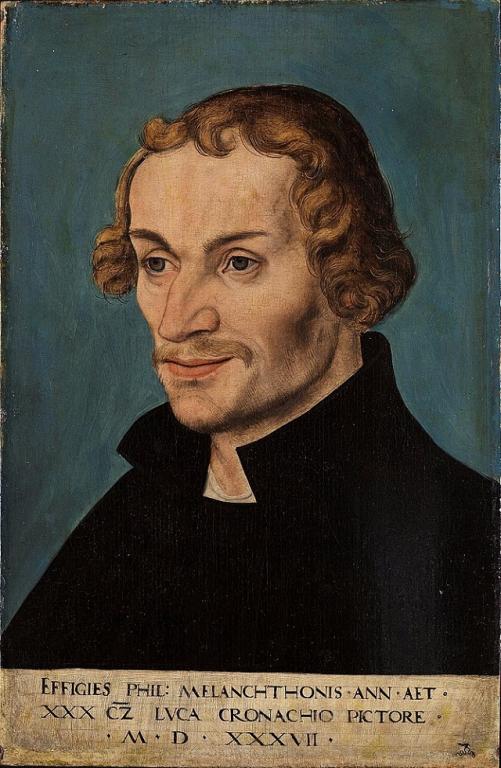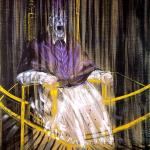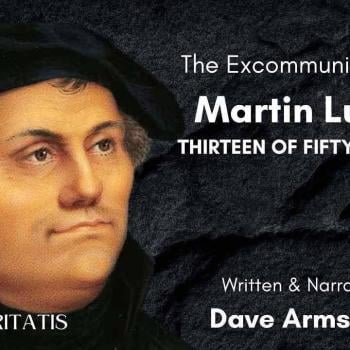
[Melanchthon’s words will be in blue]
*****
Philip Melanchthon (1497-1560) was Protestant founder Martin Luther’s right-hand man and successor as the leader of Lutheranism. He had a much milder temperament than Luther (a fact widely noted in biographies and studies of the period), and is properly classified as a “Christian humanist.” Melanchthon wrote Loci Communes Theologici (1521, rev. 1555), the first Protestant systematic theology, and the Augsburg Confession (1530), a relatively conciliatory document which contained what could be considered many “Catholic” elements. He is also considered the father of the German educational system.
It is obvious from his many statements below that he was troubled by what had happened in the first generation or two since the Protestant so-called “Reformation” of the Church began in 1517. Melanchthon’s leading concerns were obviously with internal Protestant divisions and Church polity, as well as moral and educational laxity. It wasn’t supposed to be this way. Protestantism (so thought Luther, Melanchthon, Calvin, Zwingli, and others, with utter naivete) was to usher in a new golden era of Church history: a “reformation.” So when all was not peachy in the newly-founded variation of Christianity, this surprised, shocked, and grieved those who were in the forefront of the revolution. Luther made many statements along the same lines: especially passionately decrying sectarianism and anarchy.
This is not to say that Luther or any other founder of Protestantism acknowledged that the sectarianism-run-amok of the new system was caused at all by its fundamental principles (as a Catholic like myself would “brashly” submit) . To them, the resulting chaos and uproar were unfortunate corruptions of what they advocated: caused mostly by other historical forces and trends. These downward, semi-anarchical trends disturbed them to no end, but didn’t cause them to question their premises or presuppositions. Thus, no “ground-level” reappraisal of what they had brought about was ever undertaken, to my knowledge.
Whether this (from a “theologically opposed” Catholic perspective) had something to do with the pride of people who couldn’t bear thinking that they had made a huge mistake, affecting many millions of people, or faulty thinking (or a little of both, or some other factor), is not for me to judge, and indeed would be presumptuous. Yet if such were the case (only God knows these men’s innermost thoughts and motivations), it would not be at all inconsistent with the data we find, of the sort presented below. Both Melanchthon and Luther, to their credit, bemoaned and strongly opposed sectarianism and measures (such as the Protestant rejection of religious tolerance at the Diet of Speyer in 1529) which would likely further it. But they seemed blind with regard to their own historical contribution (via the introduction of theological and ecclesiological novelties and innovations) to this practically inevitable outcome.
Melanchthon’s ample expressions of regret come closest to a position whereby the first Protestants (as a matter of conjecture) may have suspected (without saying it) some excess or error in some of their newly-minted beliefs. Perhaps some guilt or second-thoughts come into play here. But he doesn’t directly say any such thing. Melanchthon — like Luther and Calvin — never (at least not in anything I have seen) doubts the essential validity of Protestantism and its assumed vast superiority to Catholicism. That being the case, his lamentations are all the more striking — not to mention, laced with a dark, almost bitter irony. They remain remarkable in any event, and are rarely seen by Protestants. I certainly had never seen anything like this in my Protestant days; I had to come across such material in Catholic historical works dealing with this period.
Protestant historical works either don’t mention or minimize and/or try to explain away these things, because they don’t fit the hallowed “mythology” that Protestantism has long since built up about itself and its origins. Since the thrust and emphasis of “polemical Protestantism” is to always contrast itself favorably with the far-inferior Catholicism, it is counter-productive to highlight any of the severe problems in early Protestantism. Thus the trend has been to whitewash unsavory elements in its own history. I hasten to add that this exhibits the natural bias of any belief-system and is not by any means peculiar to Protestantism. But as a student of history, curious about all its aspects: good and bad, I want to know as much as I can about those areas which interest me.
[“BR” in the documentation below stands for the editor Bretschneider, who put together the German collection of primary early Protestant sources, Corpus Reformation, in Halle in 1846]
[everything below is a quotation]
*****
This most miserable anarchy causes me such anguish that I would gladly leave this life . . . Anarchy strengthens the presumption of the wicked, and the neglect of learning threatens to bring on another age of darkness and of barbarism . . . Contempt of religion parades quite openly. (in Johannes Janssen, History of the German People From the Close of the Middle Ages, 16 volumes, translated by A. M. Christie, St. Louis: B. Herder, 1910 [orig. 1891]. XVI, 23-24; BR, V, 852; VII, 543; unknown date)
If only I could revive the jurisdiction of the bishops! For I see what sort of Church we shall have if the ecclesiastical constitution is destroyed. (in Hartmann Grisar, Luther, translated by E. M. Lamond, edited by Luigi Cappadelta, six volumes, London: Kegan Paul, Trench, Trubner and Co., 1917; VI, 270; BR, II, 234; letter to Camerarius; unknown date)
The condition of Church affairs causes me anxiety which nothing can mitigate. Not a single day goes by on which I do not wish that my life was at an end. (Janssen, ibid., V, 220; BR, I, 1110; unknown date)
They [the German princes] do not care in the least about religion; they are only anxious to get dominion into their hands, to be free from the control of bishops . . . Under cover of the Gospel, the princes were only intent on the plunder of the Churches. (in Will Durant, The Reformation, [volume 6 of 10-volume The Story of Civilization, 1967], New York: Simon & Schuster, 1957, 438, 440; unknown date)
His efforts for the revival of liberal culture in Wittenberg were completely shipwrecked. In his private letters he had no hesitation in attributing to the Wittenberg theologians the responsibility of the contempt of learning. (Janssen, ibid., III, 357; BR, I, 575, 604, 613, 679, 683, 695, 726, 894)
[Protestantism caused] a decline in . . . learning. Complaints on this score begin to make themselves heard even in the first years after the introduction of the religious innovations; not only from Erasmus and other humanists, but also among the leaders of Protestantism itself, especially from Melanchthon, in whose letters and speeches, from 1522 till his death, laments on the decay of all the fine arts and all learning never cease.(Janssen, ibid., XIV, 235)
Again and again he declares that the sins and vices of the Protestant princes, preachers, and people cause him more anxiety than the onslaughts of the opponents. (Janssen, ibid., XVI, 21-22)
‘Had I as many tears as the waters of the Elbe‘, he wrote in September 1545, ‘still they would not cease to flow.‘ Later on . . . he could weep ‘as much as the Elbe and the Weser together‘. He stood helpless before the prospect of universal decay . . . There is no end to the lamentations in his letters.(Janssen, ibid., XVI, 23-24; BR, V, 852, VII, 543)
The fact is undeniable, that the Reformation in Germany was accompanied and followed by antinomian tendencies and a degeneracy of public morals. It rests not only on the hostile testimonies of Romanists and separatists, but Luther and Melanchthon themselves often bitterly complained in their later years of the abuse of the liberty of the gospel and the sad state of morals in Wittenberg and throughout Saxony. (Protestant historian Philip Schaff, History of the Christian Church, 2nd edition, 1882, vol. VII, § 7. Justification by Faith)
Luther, and especially Melanchthon, bitterly complained, in their later years, of the abuse of the episcopal power assumed by the magistrate, and the avarice of princes in the misappropriation of ecclesiastical property. (Schaff, ibid., § 44. Address to the German Nobility)
I am seized with agony beyond all conception, when I contemplate the conditions of our times. Nobody hates the evangel more bitterly than the very people who pretend to be of our party. The wickedness of the peasants is intolerable. (Janssen, ibid., XVI, 21; in June 1528)
Never before, has the attitude of the world been so unfriendly and odious as today. (Janssen, ibid., XV, 480; in 1528)
In Germany learning has become an object of contempt. (Janssen, ibid., XIII, 328; letter to King Henry VIII in 1535)
The schools in Germany are deserted . . . among the people learning is universally hated, and even the princes . . . are filled with contempt and hatred for study. (Janssen, ibid., XIII, 328-329; BR, I, 756; letter to Arnold Burenius in 1542)
The first class [of Protestants] . . . detest the bonds of Church laws and usages and prefer the dissolution of all discipline . . . the greater part of the common people who understand nothing of the grounds of the teaching . . . The second class are the . . . nobles . . . who approve . . . not because of conviction, but because they do not wish to oppose the princes. The third class . . . make a great pretence of piety . . . but under this cloak they seek only to gratify their own lusts . . . The fourth class is those whose convictions are based on their own understanding; but of these there are few.
(Janssen, ibid., XVI, 22; BR, V, 725-726; in 1545)
The majority of Germans hate the Word of God as much as they hate us. (Janssen, ibid., XVI, 22; BR, VI, 778; from the year 1548)
The confessional division in the Protestant camp arose very early. It was at first confined to a difference of opinion on the eucharistic presence, which the Marburg Conference of 1529 could not remove, although Luther and Zwingli agreed in fourteen and a half out of fifteen articles of faith. Luther refused any compromise. Other differences gradually developed themselves, on the ubiquity of Christ’s body, predestination, and baptismal regeneration, which tended to widen and perpetuate the split. . . .
The controversies among the Protestants in the sixteenth century roused all the religious and political passions and cast a gloom over the bright picture of the Reformation. Melanchthon declared that with tears as abundant as the waters of the river Elbe he could not express his grief over the distractions of Christendom and the “fury of theologians.” (Schaff, History of the Christian Church, 2nd edition, 1882, vol. VII, § 10. Protestantism and Denominationalism)
I am unable to suggest anything that could heal this anarchy. (Janssen, ibid., VII, 140; BR, VIII, 504; letter to Hardenburg, c. 1558)
***
Related reading:
“Absurd” Protestant Divisions: Calvin’s Revealing Lament to Melanchthon [2-6-06]
Melanchthon’s Agonized Tears Over Early Protestant Divisions [6-15-11; additions on 10-11-17]
***
Photo credit: Portrait of Philipp Melanchthon (1537), by Lucas Cranach the Elder (1472-1553) [public domain / Wikimedia Commons]
***













